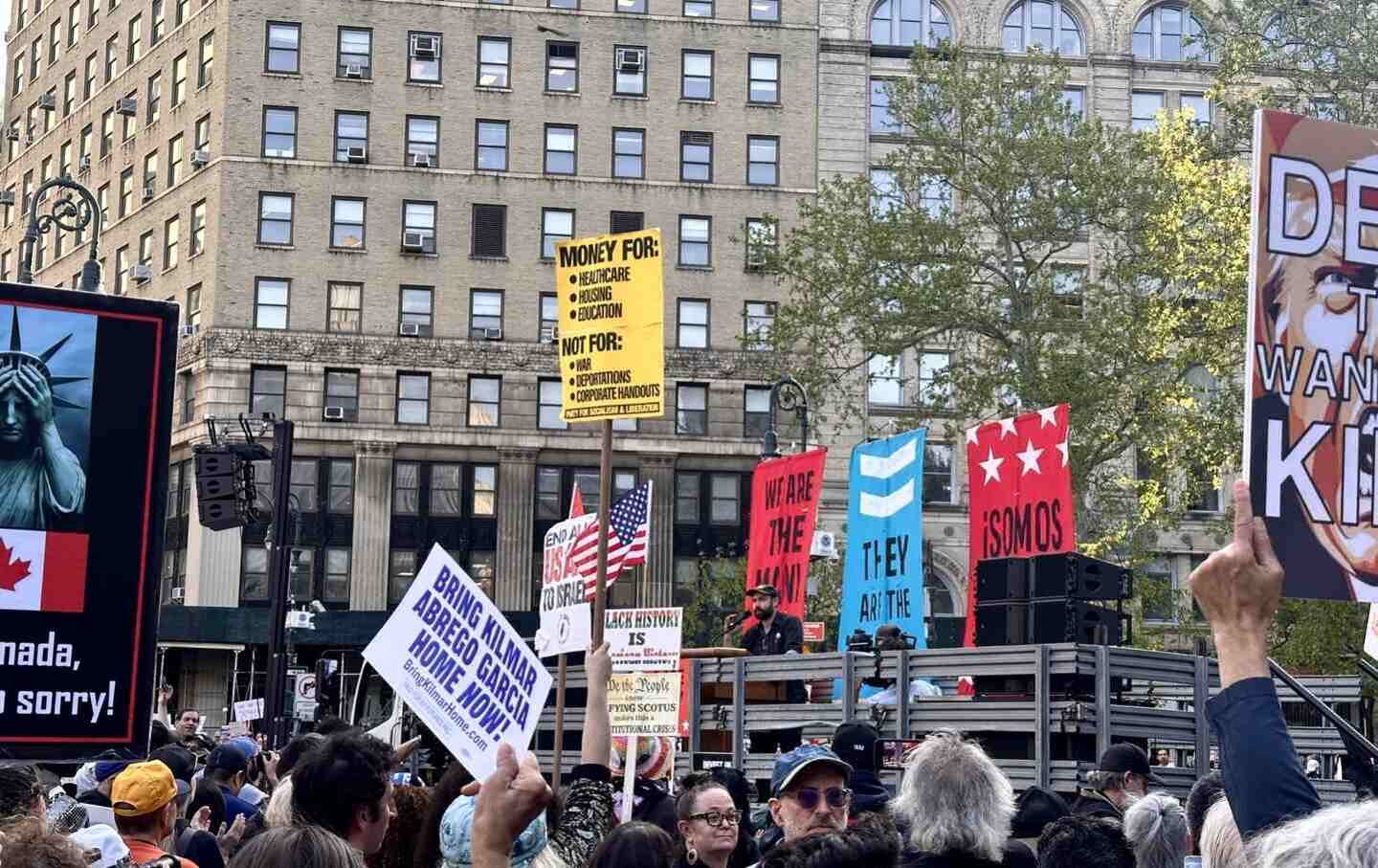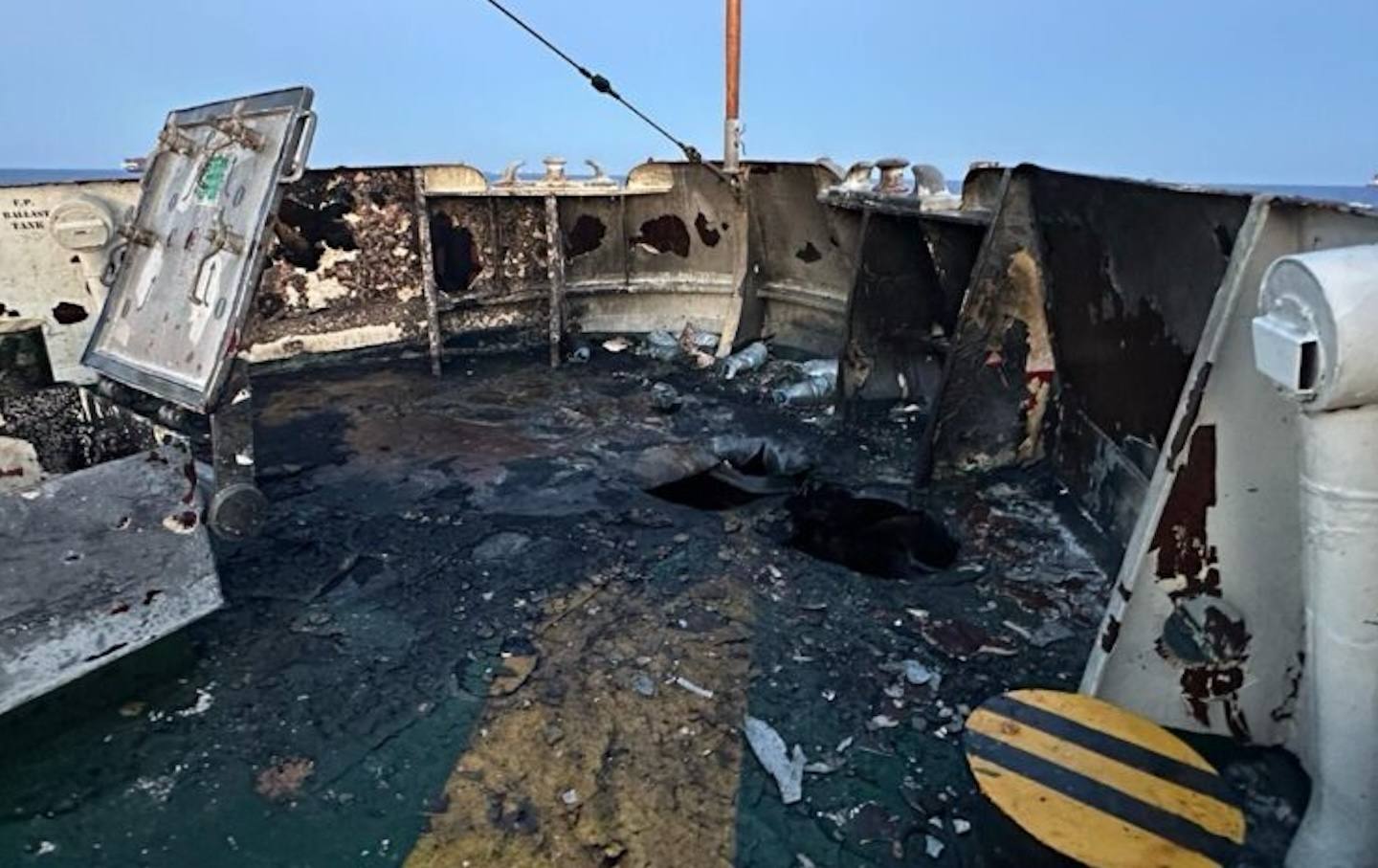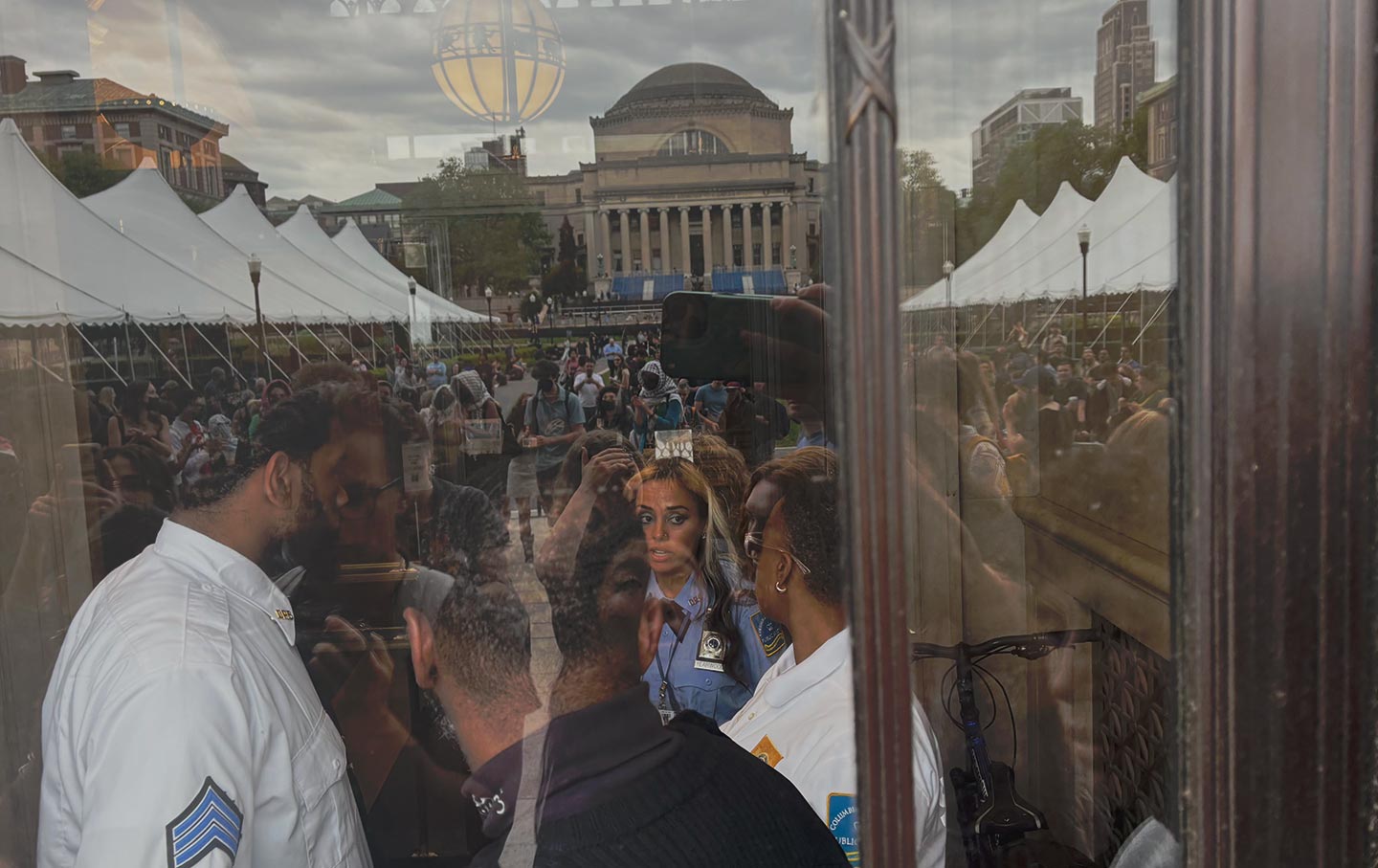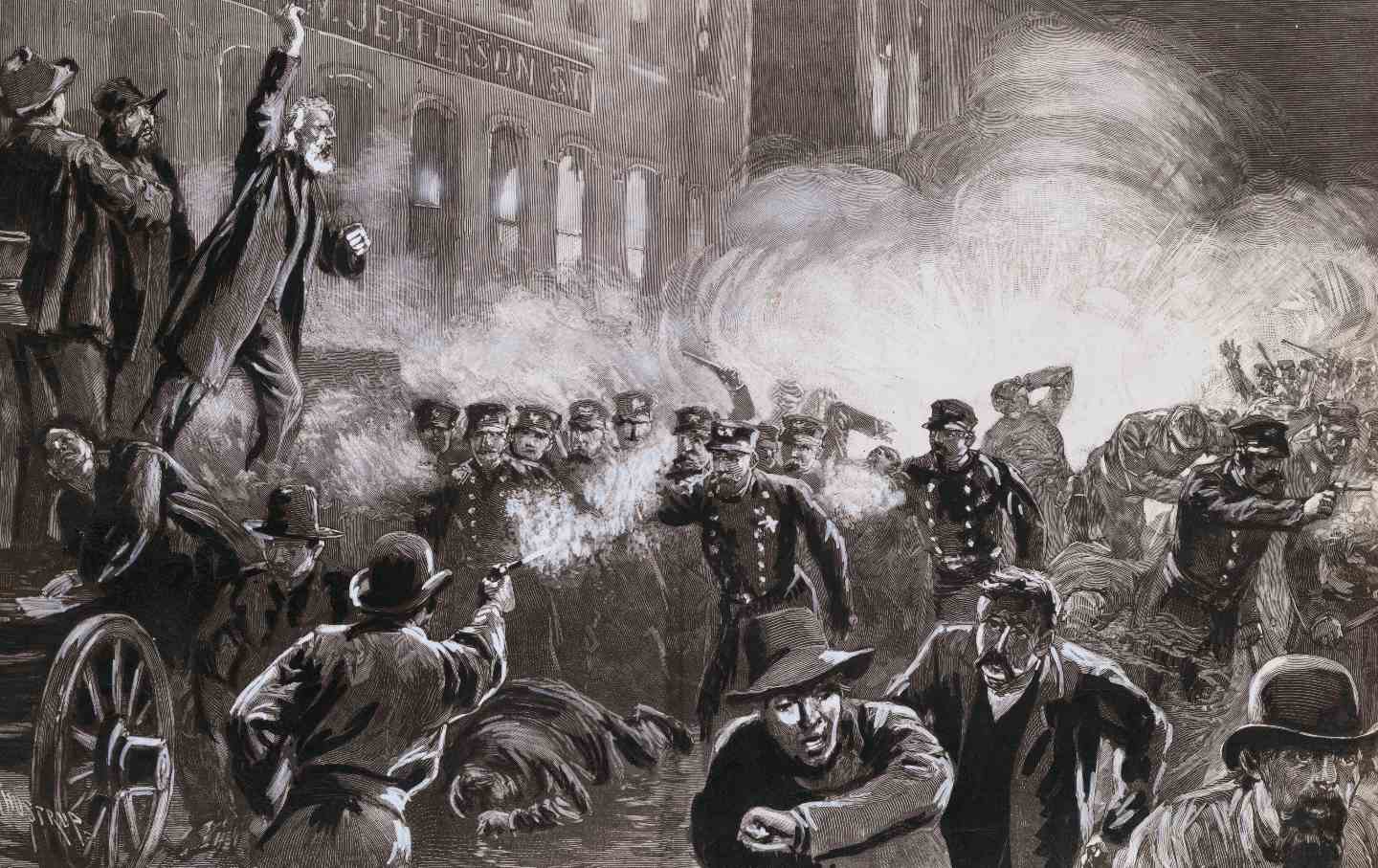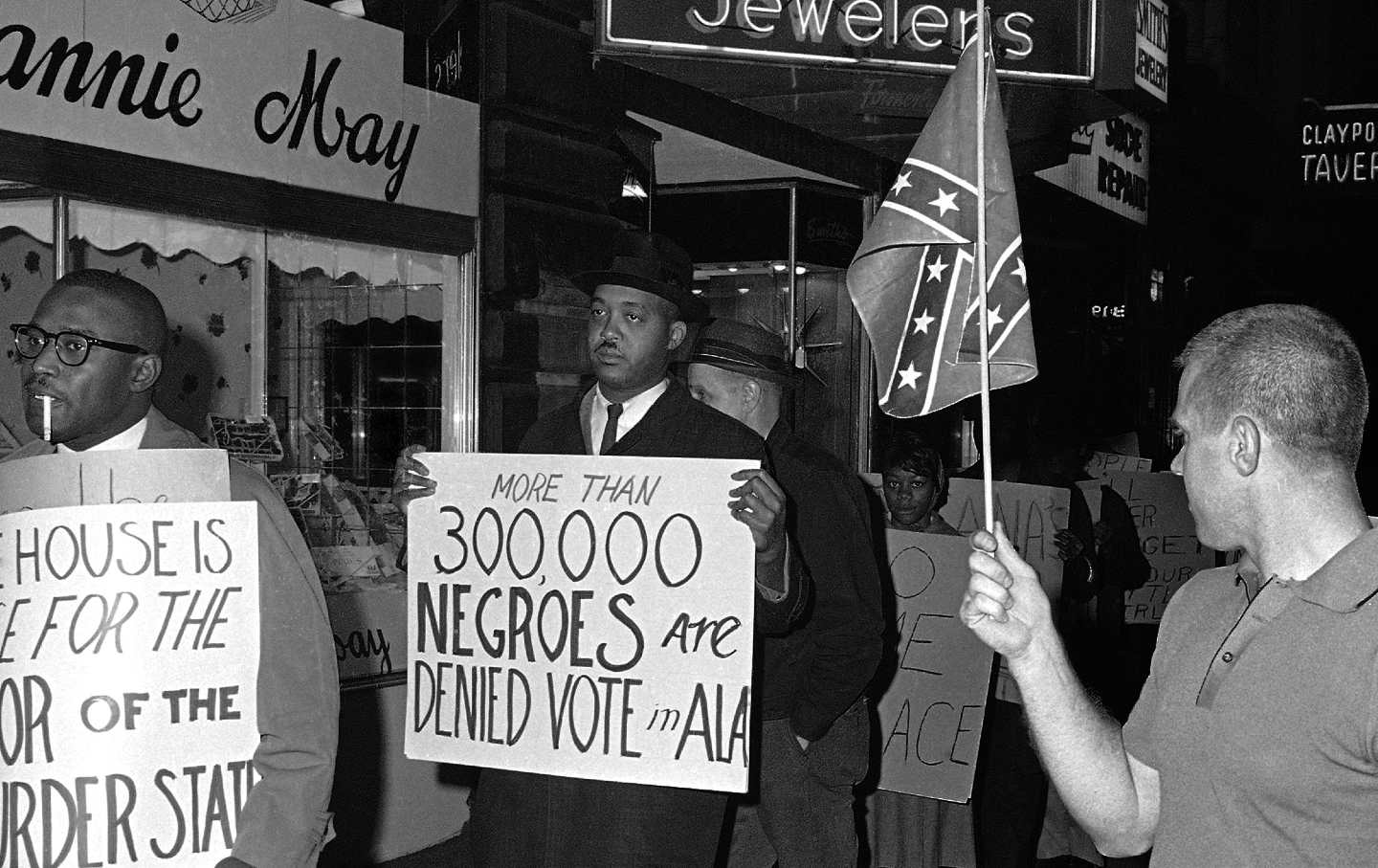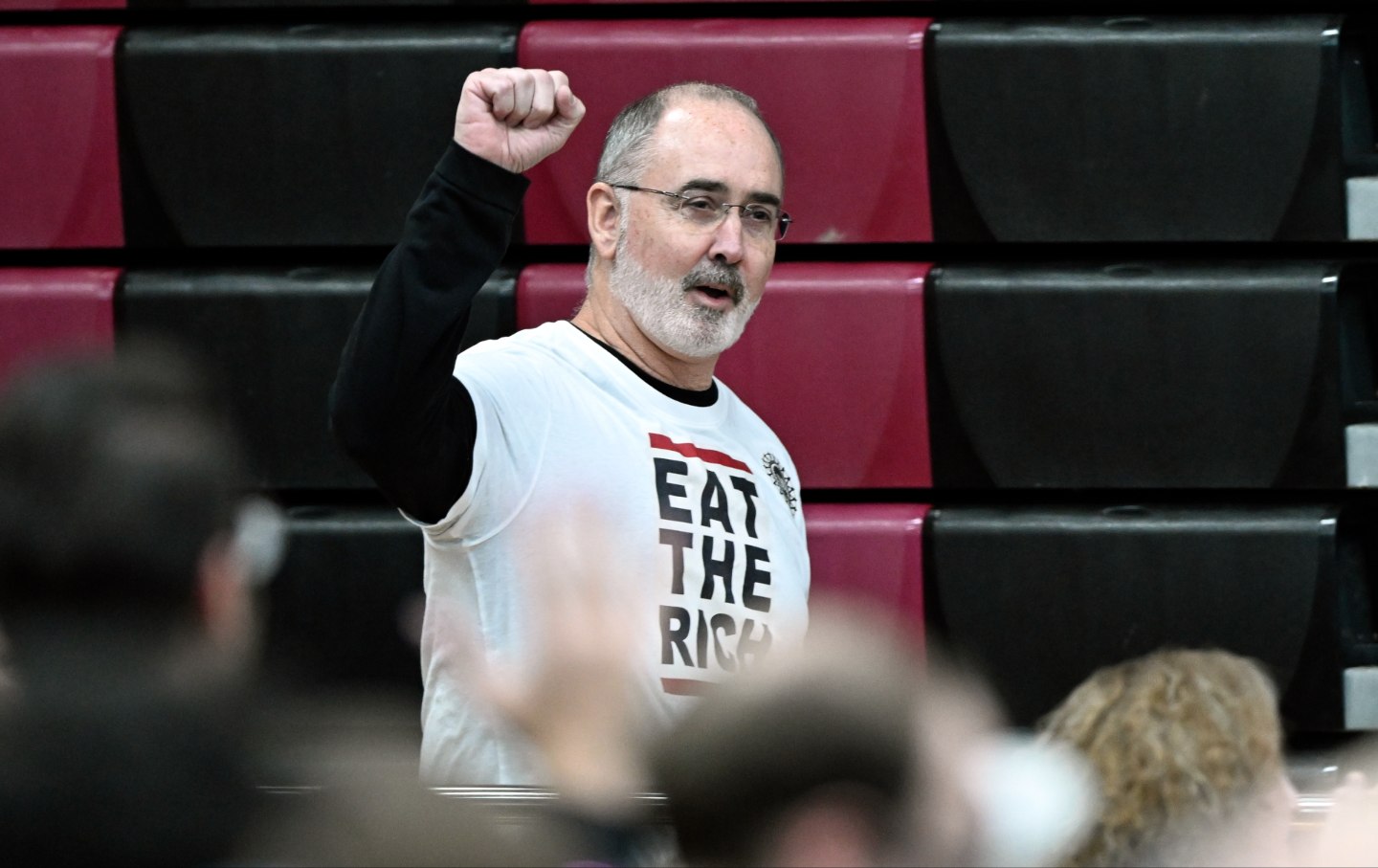How Yale University Surveils Pro-Palestine Students
Documents reveal a pattern of targeted monitoring: administrator presence at rallies, police surveillance of social media, and coordination between campus, local, and state police.
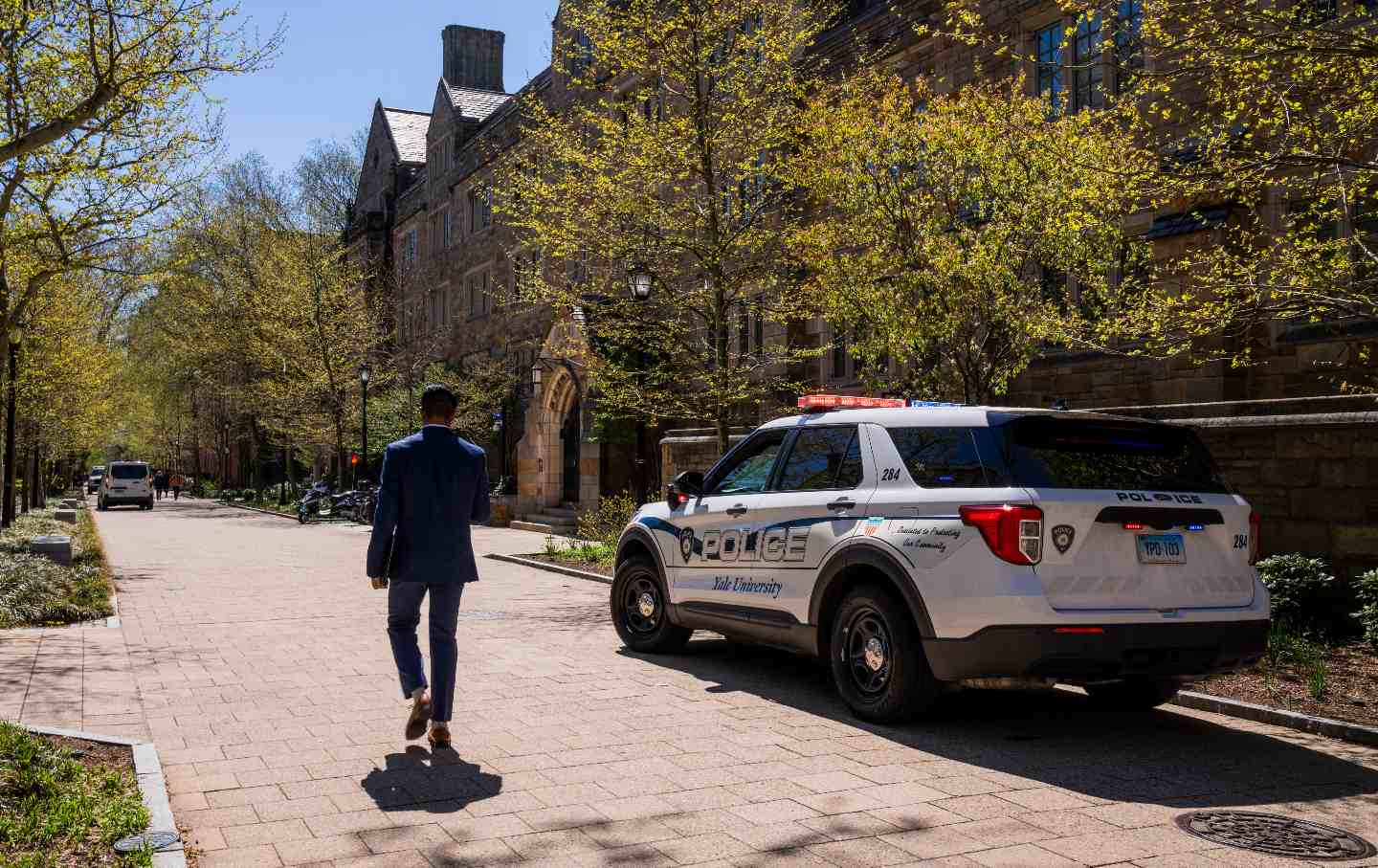
Campus police parked at Yale University in New Haven, Connecticut.
(Joe Buglewicz / Getty)
As pro-Palestine students have slowly escalated their tactics in response to a deadlock on divestment and escalating violence in Gaza, Yale has deployed a variety of measures to monitor student dissent. Documents obtained by The Nation under Connecticut’s Freedom of Information Act illustrate a pattern of targeted surveillance by Yale University against students engaged in pro-Palestine activism.
These tactics, as the documents reveal, vary from administrator presence at rallies to police surveillance of students’ social media accounts, to coordination between campus, local, and state police forces.
The university has, so far, avoided the drama of presidential resignations like those at Harvard and the University of Pennsylvania. Until it arrested 47 students at an encampment on April 23, the protests on campus were largely not disruptive to campus life.
However, in seeking to avoid the fate of its fellow Ivy League institutions, its goal is to be one step ahead of its students, conversations between Yale Police Department (YPD) officers and university officials show.
Pilar Montalvo, assistant vice president for university life, was one of those tasked with this job, and has become a recurring figure in students’ on-campus activities. “In [Montalvo’s] interactions with students, she tries to shut down whatever we’re doing,” said Patrick Hayes, a Yale student involved in pro-Palestine activism on campus. “It’s kind of obvious that the administrative rules are applied very differently to groups that have missions that the university sees as counter to their own.”
Her job became even more important for the university after the House Education Committee launched an inquiry into antisemitism on college campuses and Yale was declared the subject of a Title VI investigation by the United States Department of Education.
Montalvo, as the documents reveal, is frequently tasked with attending protests and handling tense interactions, including when Zionist counterprotesters attacked pro-Palestine organizers. In one incident for which she drew criticism, she allowed a pro-Israel student to take down a poster mourning Palestinians killed by Israel’s attacks on Gaza. As she was quoted in the Yale Daily News, “I should have removed the poster myself rather than allowing a student to do so.” Montalvo did not respond to multiple requests for comment.
The documents date from the beginning of October to the end of December. However, what is clear from the documents currently available is that the administrative bureaucracy at Yale—which now outnumbers its undergraduate students—has been crucial in shutting down conversations about anti-Palestinian and anti-Muslim hate incidents that have occurred on campus. In the hundred pages of documents obtained by The Nation, Montalvo is copied on nearly every YPD e-mail exchange about pro-Palestine events and rallies. Not only does Montalvo appear to work directly with the YPD, but she collaborates with centers and initiatives housed within the university—especially those that have a stake in pro-Palestine organizing.
One individual who communicated directly with Yale administration and the YPD is Uri Cohen, the executive director of the Slifka Center for Jewish Life at Yale. Cohen runs one of the many student life centers at the university to which Yale has dedicated ample time and resources after it launched its Belonging at Yale initiative in 2020.
Cohen and other staffers at the Slifka Center have been in frequent communication with Montalvo and the YPD with concerns about the activities and speech of pro-Palestine organizers. “I just heard that the language around tomorrow’s SJP day of resistance now includes explicitly that violence against Zionist-identified people and institutions are both justified and politically necessary,” wrote Cohen in one early October email to Duane Lovello, director of public safety & community engagement. This language didn’t appear in any official postings by Yalies4Palestine, and it is unclear exactly which post Cohen was referring to. Despite this, Montalvo used Cohen’s comment as a pretext to call one of Yalies4Palestine’s lead organizers into a meeting to gather more information.
After a student involved in Yalies4Palestine didn’t respond to a phone call about an upcoming rally, the assistant vice president for university life contacted the student’s mother, according to Rebecca Wessel. It is unclear whether this violates Yale’s policies on contact with students and their families.
After the Yale Women’s Center came under fire for its annual conference, which, this year, was titled, “Pinkwashing and Feminism(s) in Palestine,” Cohen commented in an article published by Jewish Insider criticizing the students for hosting the event. “To the extent the Center is organizing this event, it betrays its obligations to Yale’s Jewish and Israeli women in particular, and to its mission.” Cohen did not respond to multiple requests for comment.
Popular
“swipe left below to view more authors”Swipe →Even if Yale’s intention in communicating with its students about on-campus organizing is to ensure the safety of the community—per President Salovey’s November 3 statement on compassion and civility—the university’s actions reveal a desire to quash dissent.
Incidents of university administrators—who are in positions of power over students—calling students on their personal cell phones, when there has not been an alleged violation of university policies or procedures, doesn’t reflect Salovey’s stated goal of “embracing the open exchange of ideas.”
During potentially contentious academic events, administrators insist on the presence of uniformed officers, despite student resistance. Lukey Ellsberg, a graduate student at Yale, said Montavlo’s presence at these events inflamed tensions and frequently endangered the safety of students and faculty.
At an event in the fall titled “Gaza Under Siege,” which is now the subject of a federal investigation, “[Montalvo] grabbed my friend by the arm at one point and yelled in her face. She yelled directly in my face about how you need to count how many people are here so that we know how many more people we can let in,” said Ellsberg.
As Wessel said, “[These administrators] act in a way that is inappropriate and has threatened students. These tactics just try to throw us off, stop momentum, and prevent student organizing success.”
Yale not only contacts students about planned rallies but actively monitors for events before they are made aware of them through official channels. In one case, Vanessa Schenking, YPD’s compliance and crime analyst, sent an e-mail to Steven Citta, lieutenant at the Hartford Police Department, tipping him off about a potential Yalies4Palestine action at a weapons manufacturing plant: “Just found that there is a National Day of Action on 11/18. Yalies4Palestine is sponsoring an event taking place in Hartford where they intend to protest and march.”
In another, Schenking wrote to YPD officials, “I found the attached event through Instagram open-source searching. It is taking place tonight in Watson at 6pm. Just sending for awareness, not sure if we are already aware of this.”
On many other exchanges, YPD officials communicated via e-mail with the New Haven Police Department to plan their responses to pro-Palestine actions in New Haven. In some cases, that meant organizing potential routes of travel for protests. In others, it meant responding to concerns from community members about the statements or rhetoric of pro-Palestine organizers. Both agencies were intimately involved in the policing of students in the early months of pro-Palestine activism in New Haven through internet monitoring, in-person presence at rallies, and communication with university administrators.
The YPD and the NHPD’s presence on campus have left many organizers feeling scared for their safety. On May 1, Yale police violently arrested four pro-Palestine protesters in front of the university’s central library. The Yale Daily News reported that the protesters were peacefully dispersing when Chief of Police Anthony Campbell tackled a protester and knelt on his back.
Organizers emphasize how Israel’s ongoing occupation of the Palestinian Territories is intimately linked with police violence on Yale’s campus. “[The YPD] are absolutely not there to keep students safe. They’re really only putting more people in danger, injuring people,” said Wessel. “I am very uncomfortable with YPD and NHPD at pro-Palestine rallies because I fear that they will escalate.”

